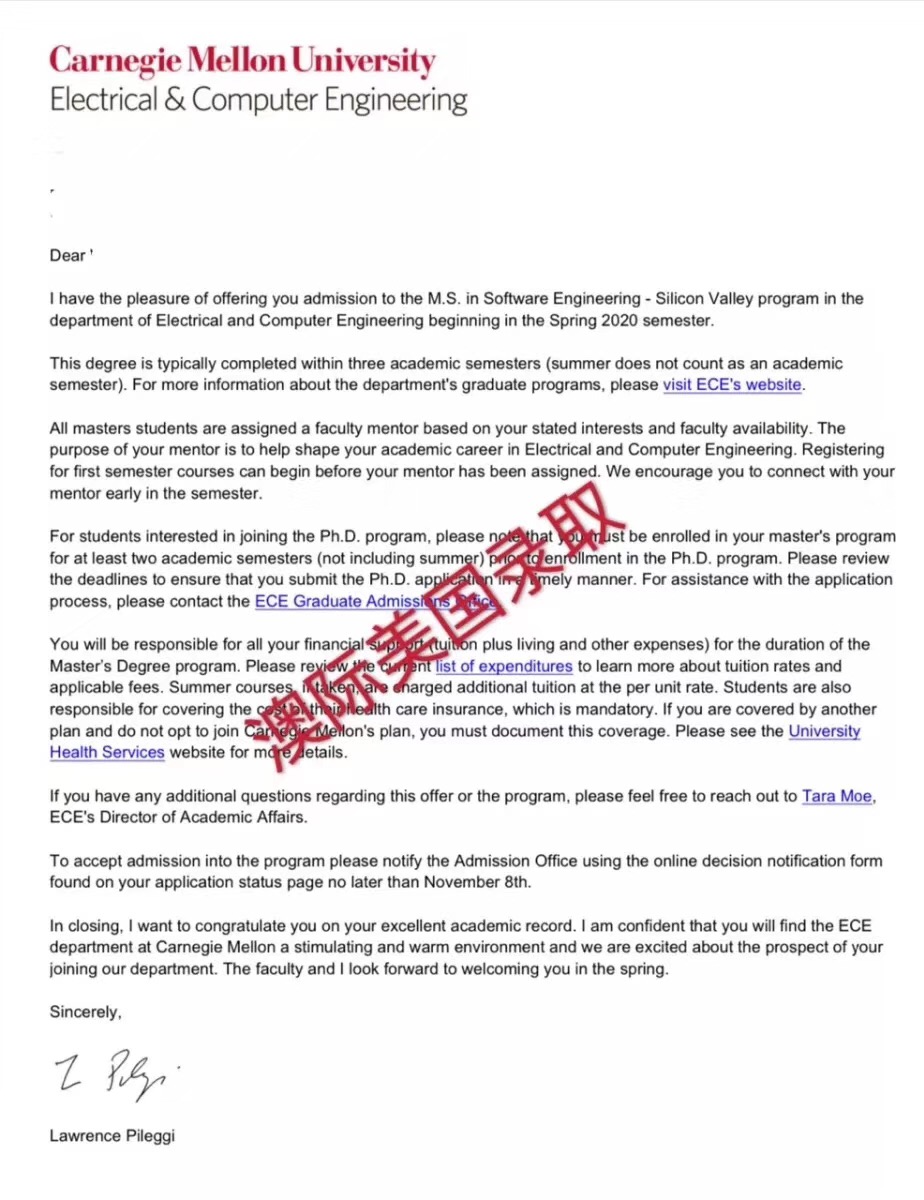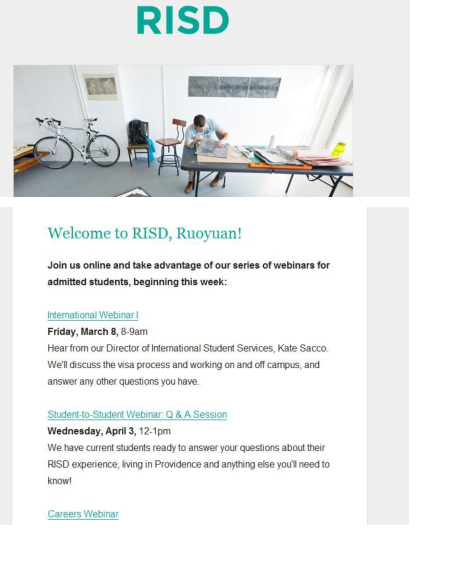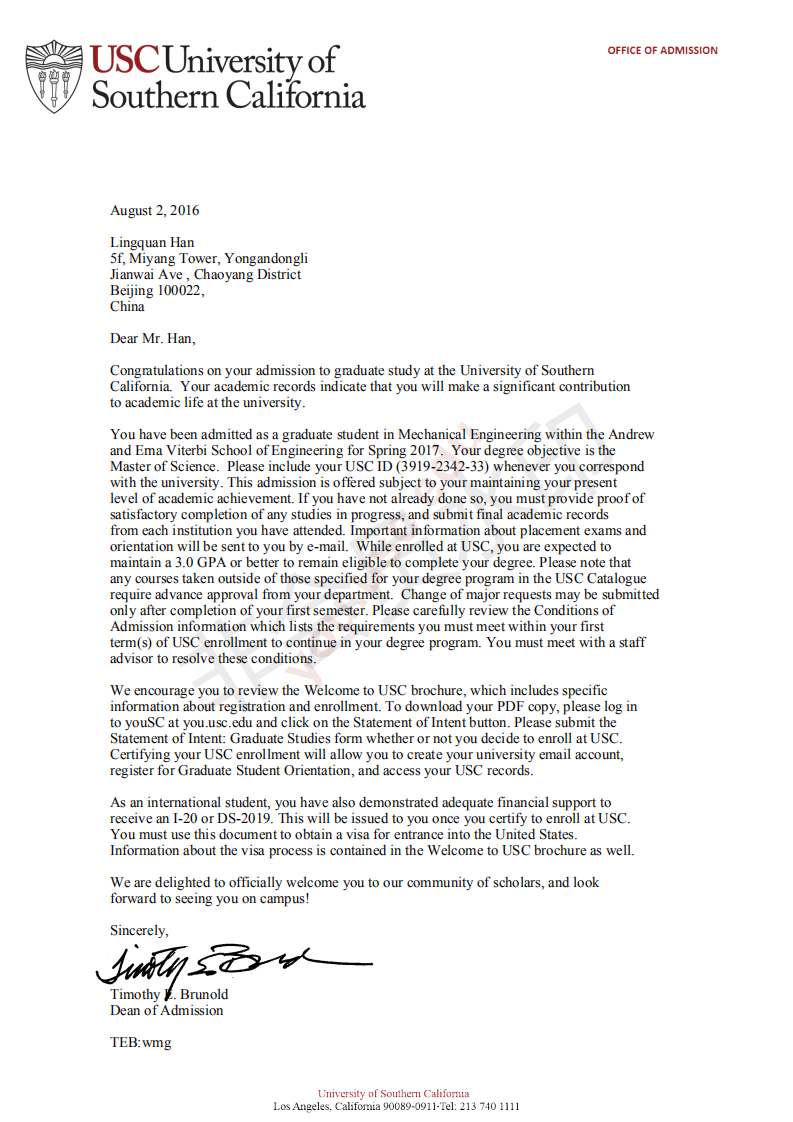美国留学研究生ps怎么写?.
2017-07-20 360阅读
最近不少同学在问,美国留学研究生ps怎么写,对于这个问题,下面这篇原汁原味的文章可以回答你的问题。研究生ps怎么写,怎么写才能在芸芸申请人中脱颖而出,仔细看看吧。
personality and intellect. It is important that you read each question carully and make every fort to understand and respond to it with well-considered responses and in a persuasive enough manner to hold the reader’s interest.
1. Understand and Explain Yourself
One of the main problems when writing is that applicants fail to take a thorough and analytical look at themselves and their objectives. Admission committee members are looking for interesting, insightful, revealing, and non-generic essays that suggest you have successfully gone through a process of carul rlection and self-examination.
2. Set Yourself Apart
Committees are looking for something PERSONAL and ANALYTICAL. This means sharing information you rarely share with others and assessing your life more critically than usual. This approach is key to a successful personal statement.
Exercise: In order to begin writing your personal statement – your story—you’ll need to answer some basic questions to prepare yourself.
Questions:
What is special, unique, distinctive, or impressive about you or your life story? What details of your life (personal or family problems/ history, any genuinely notable accomplishments, people or events that have shaped you or influenced your goals) might help the committee better understand you or help set you apart from other applicants?
When did you originally become interested in this field and what have you since learned about it—and about yourself—that has further stimulated your interest and reinforced your conviction that you are well suited to this field? This does not mean that you should write, “Why I want to be a lawyer.” Instead, tell what insights you have gained from certain experiences that reinforce your decision to go to law school
How have you learned about this field—through classes, readings, seminars, work or other experiences, internships, or conversations with people already in the field.
If work experiences have consumed significant periods of time during your college years, what have you learned (leadership or managerial skills, for example), and how has the work contributed to your personal growth?
What are your career goals?
Are there any gaps or discrepancies in your academic record that you should explain (great grades and mediocre LSAT scores, for example, or a distinct improvement in you GRA if it was only average in the beginning?
Have you had to overcome any unusual obstacles or hardships (e.g., economic, familial, physical) in your life?
What personal characteristic (integrity, compassion, persistence, for example) do you possess that would enhance your prospects for success in the field or profession? Is there a way to demonstrate or document that you have these characteristics?
What skills (leadership, communicative, analytical, for example) do you possess?
Why might you be a stronger candidate for graduate school—and more successful and fective in the profession or field—than other applicants?
What are the most compelling reasons you can give for the admissions committee to be interested in you?
Tell a Story
Be truthful and stick to the facts; yet, think of your personal statement in the terms of writing a story. You want to write something that is fresh, lively, and different, to put yourself ahead of the other applicants. A personal statement MUST be MEMORABLE. One of the worst things you can do with your personal statement is to bore the admissions committee, yet that is exactly what most applicants do. Review your life very carully (get help from family or friends if necessary) for facets or experiences that reveal an unusual dimension related to your professional goals or that could serve as evidence of your suitability for being a lawyer.
Find an Angle
If you are like most people, your life story might well lack significant drama, so figuring out a way to make it interesting becomes the big challenge. Finding an angle is vital. Brainstorm for ideas that emphasize your exceptional qualities, goals, past performances.
Concentrate on Your Opening Paragraph
Keep in mind when composing your statement that the lead or OPENING PARAGRAPH IS generally the MOST IMPORTANT. Here you either GRAB the readers attention or lose it. If you are telling a story you will use this first paragraph to introduce the elements most relevant to that story—and the ones that will hold greatest interest for the reader.
Tell Who You Are
The committee needs to get a sense of who you are, what makes you tick, and how you are different from other applicants. They should be interested in you, eager to hear more, impressed that
what you are saying to them is not what they have read a thousand times bore.
Sometimes a personal statement can be perfectly well written in terms of language and grammar, but disastrous in lacking punch or impact and in being totally off the mark concerning what it chooses to present about the applicant. Remember, what is most important about your personal statement is what you say and how you say it! Be selective about what you tell the admissions committee.
What you choose to say in your statement is, again, very much a rlection of you, because it shows the committee what your priorities are, what you consider to be important. The personal statement is often an indication, too, of your judgment, so be carul and give a great deal of thought to what you write. Think about yourself, your background, and your experiences and abilities to develop a strategy.
Other Things To Consider
Determine what you would tell an admission committee member if you had five minutes to answer the question “What is most important for us to know about you?” This exercise will force you to do the type of thinking that must precede the preparation of an fective personal statement.
Do not make the mistake of trying to guess what the admissions committee is looking for, and do not just write what you think the committee wants to hear. Such ploys are highly obvious to admissions people and can be detrimental to your cause.
Be selective. Don’t introduce inappropriate material or get into so much detail that your judgment can be called into question.
Try to maintain a positive and upbeat tone. Overall, you want to project confidence and enthusiasm.
Be specific when appropriate and use details.
Adhere to stated word limits. Do not give them reason to toss your application packet
Be meticulous (type and proof read your essay carully and have others read it too).
If a school wants to know why you are applying to it rather than another school, do a bit of research if necessary to find out what sets your choice apart from other universities or programs. If the school setting would provide an important geographical or cultural change for you, this might be a factor to mention.
Are you providing something more than a recitation of information available elsewhere in the application? Do not repeat information that you have already included in other documents.
Are you avoiding obvious clichés? For example, a medical school applicant who writes that he is good at science and wants to help other people is not exactly expressing an original thought.
美国留学研究生ps怎么写?美国留学研究生ps怎么写?最近不少同学在问,美国留学研究生ps怎么写,对于这个问题,下面这篇原汁原味的文章可以回答你的问题。研究生ps怎么写,怎么写才能在芸芸申请人中脱颖而出,仔细看看吧。
personality and intellect. It is important that you read each question carully and make every fort to understand and respond to it with well-considered responses and in a persuasive enough manner to hold the reader’s interest.
1. Understand and Explain Yourself
One of the main problems when writing is that applicants fail to take a thorough and analytical look at themselves and their objectives. Admission committee members are looking for interesting, insightful, revealing, and non-generic essays that suggest you have successfully gone through a process of carul rlection and self-examination.
2. Set Yourself Apart
Committees are looking for something PERSONAL and ANALYTICAL. This means sharing information you rarely share with others and assessing your life more critically than usual. This approach is key to a successful personal statement.
Exercise: In order to begin writing your personal statement – your story—you’ll need to answer some basic questions to prepare yourself.
Questions:
What is special, unique, distinctive, or impressive about you or your life story? What details of your life (personal or family problems/ history, any genuinely notable accomplishments, people or events that have shaped you or influenced your goals) might help the committee better understand you or help set you apart from other applicants?
When did you originally become interested in this field and what have you since learned about it—and about yourself—that has further stimulated your interest and reinforced your conviction that you are well suited to this field? This does not mean that you should write, “Why I want to be a lawyer.” Instead, tell what insights you have gained from certain experiences that reinforce your decision to go to law school
How have you learned about this field—through classes, readings, seminars, work or other experiences, internships, or conversations with people already in the field.
If work experiences have consumed significant periods of time during your college years, what have you learned (leadership or managerial skills, for example), and how has the work contributed to your personal growth?
What are your career goals?
Are there any gaps or discrepancies in your academic record that you should explain (great grades and mediocre LSAT scores, for example, or a distinct improvement in you GRA if it was only average in the beginning?
Have you had to overcome any unusual obstacles or hardships (e.g., economic, familial, physical) in your life?
What personal characteristic (integrity, compassion, persistence, for example) do you possess that would enhance your prospects for success in the field or profession? Is there a way to demonstrate or document that you have these characteristics?
What skills (leadership, communicative, analytical, for example) do you possess?
Why might you be a stronger candidate for graduate school—and more successful and fective in the profession or field—than other applicants?
What are the most compelling reasons you can give for the admissions committee to be interested in you?
Tell a Story
Be truthful and stick to the facts; yet, think of your personal statement in the terms of writing a story. You want to write something that is fresh, lively, and different, to put yourself ahead of the other applicants. A personal statement MUST be MEMORABLE. One of the worst things you can do with your personal statement is to bore the admissions committee, yet that is exactly what most applicants do. Review your life very carully (get help from family or friends if necessary) for facets or experiences that reveal an unusual dimension related to your professional goals or that could serve as evidence of your suitability for being a lawyer.
上12下
共2页
阅读全文留学咨询
更多出国留学最新动态,敬请关注澳际教育手机端网站,并可拨打咨询热线:400-601-0022
留学热搜
相关推荐
- 专家推荐
- 成功案例
- 博文推荐

Copyright 2000 - 2020 北京澳际教育咨询有限公司
www.aoji.cn All Rights Reserved | 京ICP证050284号
总部地址:北京市东城区 灯市口大街33号 国中商业大厦2-3层









陈瑶A 向我咨询
行业年龄 17年
成功案例 5146人
拥有大量高端成功案例。为美国哈佛大学、宾夕法尼亚大学等世界一流名校输送大批优秀人才。
齐亚楠 向我咨询
行业年龄 15年
成功案例 4070人
商科案例有哥伦比亚大学等,工科案例有麻省理工大学等,艺术案例有罗德岛大学等。
李君君 向我咨询
行业年龄 15年
成功案例 4157人
成功案例涉及美国排名前60的院校,专业涵盖商科(金融,会计,管理),工科(生物工程,化学工程,计算机科学,电气工程)等热门领域。
闫丽 向我咨询
行业年龄 19年
成功案例 6995人
成功办理了2000多名学生,申请到斯坦福大学、约翰霍普金斯、康奈尔等世界前30的名校。